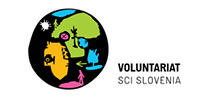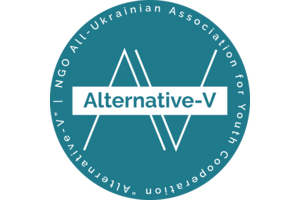Sustainability at the workcamp
In this section, we invite you to think about how you can make your camp more sustainable, both in terms of cooking and camp life in general.
Cooking
Sustainable cooking requires careful attention to food sourcing, meat consumption and waste management.
Sourcing
One of the most important aspects of cooking is the sourcing of ingredients. To promote sustainability, it's best to opt for local products whenever possible to reduce the carbon footprint associated with transportation. While this may present challenges in terms of budget and logistics, the goal is to do your best and think carefully about your purchases. Do you know where your tomatoes come from? Your bananas? Your chocolate? When faced with multiple options, prioritize products grown in the country closest to you.
In addition to considering where your food comes from, it's important to choose seasonal produce. For example, it takes more resources and energy to grow tomatoes in winter than in summer. Here's a link to a site that lists the most important fruits and vegetables to eat, depending on the country you're in and the month of the year.
Another thing to consider when shopping is over-packaging. Since you're probably buying a larger quantity of food than you would if you were cooking for one person, choose items that come in a single package over those that are individually wrapped. For example, choose a box of cookies over individually wrapped cookies in a box.
More about issues above in the chapter Shopping agenda
Plant-based options
Meat consumption, and the livestock farming associated with it, has a major impact on the environment. Indeed, it uses enormous amounts of resources (water, land use etc.) and emits enormous amounts of greenhouse gases (e.g. CO2 and methane). Greenpeace has written an article on this subject, explaining why meat is bad for the environment.
Here's an opportunity to have a reflection about your meat consumption at camp. It's true that meat provides a lot of protein, but it's also possible to replace that protein with protein from whole grains such as rice, oats, quinoa, legumes (chickpeas, lentils, black beans), and oilseeds (peanuts, almonds, sunflower seeds).
In order to preserve our planet and create global justice, it's imperative that we rethink the way we eat in our projects. For example, a step-by-step approach would be to gradually reduce the consumption of meat in your projects and replace it wisely with plant-based substitutes.
More about issues above in the chapter Sustainable cooking?
Waste
This topic is covered in another chapter , so we'll just skip over it. We simply want to emphasize the importance of making participants aware of their responsibility for waste and helping them to manage it, especially if your participants come from different countries. You might consider illustrating these differences by addressing them in a playful way, for example through a game.
More about issues above in the chapter Recycling and waste
Activities
A first aspect to consider is the activities you and the participants plan to organize to foster group life. It's important to adopt a sustainable approach even when choosing entertainment. For example, if you need to print quizzes, game rules, etc., opt for recycled paper and black-and-white printing when color is not essential.
The key word here is reuse. Try to minimize the purchase of new equipment and instead borrow or salvage equipment from previous workcamps. Contact your organization to find out what resources are available and what you can use.
Be creative! Explore the possibilities of what you already have before you think about buying something new. For example, to decorate a party, you can make garlands out of thread and fabric scraps, or use cardboard and paint to create personalized signs
If you still plan to buy equipment, choose items that can be reused for other events. As far as possible, avoid buying single-use products such as plastic balloons or short-lived games.
Travel
Before the start of the camp, it's crucial to make participants aware of the importance of using environmentally-friendly means of transport such as the train or bus. Air travel is a major contributor to climate change. This subject is usually addressed by the host organization.
However, you can also broach the subject during the camp, by discussing the various modes of travel and their impact on the environment.
Energy consumption
Finally, to maintain a sustainable lifestyle on your camp, it's essential to keep in mind these simple daily gestures:
- Opt for quick showers;
- Turn off the tap as soon as you've finished using it;
- Wash dishes with a full sink rather than leaving the water running;
- Turn off lights when leaving a room;
An interesting idea would be to introduce the role of an "Energy Lover". This person would be responsible for ensuring that all these little gestures are respected. Of course, the name of this position can be chosen at your convenience.













